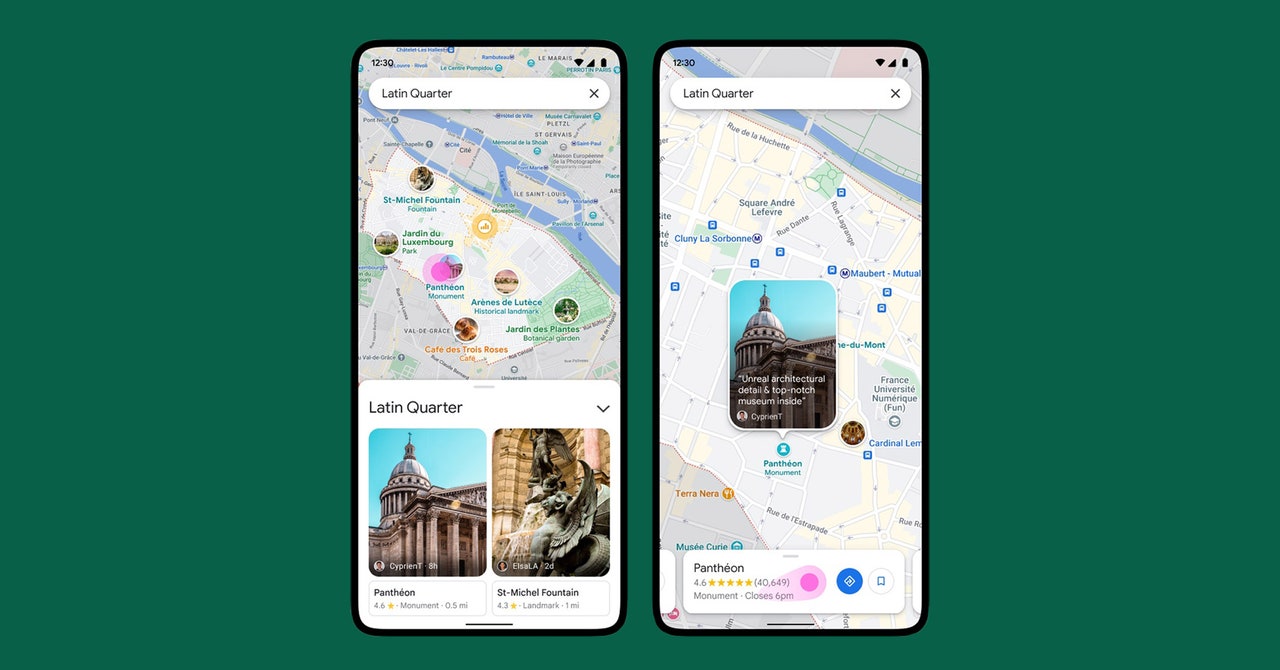In July the Google executive who oversees the company’s lucrative and dominant search engine made a surprising confession. Younger users were directing questions that would have once naturally flowed into the iconic search box to social networks, Prabhakar Raghavan said at a Forbes conference. Take the example of where to go for lunch: studies by Google found that nearly 40 percent of people ages 18 to 24 would look to Instagram or TikTok, not Google Search or Maps, to answer that question.
Today, Google announced changes to its search and maps to show more images and video in search results, including from TikTok. The updates are intended to convince Gen Z to start looking for lunch or something else.
They are the latest example of one of the most recent trends in the tech industry, where companies like Snap, Meta and Twitter have complained about the short video app, complimented it and sometimes copied it. Even Google’s search results page, one of the most enduring designs on the web, can’t resist the power of TikTok.
One of Google’s changes is bringing a feature called Exploration to the Google mobile app. It displays search results in a continuous scroll of tiles of photos and videos that are more like a social media feed than a list of links. Exploration includes Instagram and TikTok videos, as well as YouTube Shorts, the 60-second video app Google created in 2020. Google vice president Cathy Edwards described it as helping people find inspiration rather than a fact or specific answer to a question.
“We know there’s a group of users who really like the results they see on TikTok, and I think that’s partly because TikTok lowered the barrier to entry for content creation, so there’s really good content out there,” said Edwards. . “We’re looking for more ways to bring that into our search results.”
Thanks to Google
The exploration feature will initially be available on iPhones and will be limited to searches related to travel and tourism. Search for “Oaxaca, Mexico” and suggested topics in search results could be live music or Aztec ruins. The exploration features will be launched in English in the coming months.
Perhaps Google’s clearest response to the Gen Z lunch scenario in today’s updates was a new feature for Google Maps called Neighborhood Vibe. It provides an at-a-glance overview of what’s popular in a community, with landmarks and photos of business reviews on local maps. Google Maps vice president Christopher Phillips said young users inspired a more visual approach that makes information faster and easier to digest for young and old alike. Neighborhood Vibe will use a mix of human decision-making and algorithms to determine what content should be displayed in a particular area at any given time, Philips said. A Google spokesperson said Neighborhood Vibe does not consider the location data Google collects from users to determine when a business is busy.
Thanks to Google
Google has also announced other search updates unrelated to TikTok. They include a section on the results page devoted to recommendations from forums and sites like Reddit, the ability to snap a photo of a dish to find where it’s near you, and an augmented reality mode in Google Maps that lists as transit overlaps stations and ATMs on a phone’s live view of the world.
Google has previously faced new threats to its near monopoly on search. Amazon started eating Google’s search traffic years ago and is now the first place most people in the US look when they want to buy something online. In 2018, concerns about the potential impact on Google’s business led a Morgan Stanley analyst to propose Google give users free Home Mini speakers to maintain its market dominance. The suggestion may seem odd, but Google has shown a willingness to spend a lot of money to support its flagship service, paying Apple billions of dollars a year to remain the default search engine on iPhones — a fee that plaintiffs in a class-action lawsuit claim. had filed earlier this year saying amounts to an annual fee to stay out of the search engine business.
In addition to the competition from TikTok, Google Search may soon also be reformed by US or European Union antitrust rules. The EU has already fined the company millions of dollars for promoting its own shopping services in search results and is stepping up controls on platforms considered self-dealing. The antitrust law being considered by some members of Congress would prohibit dominant digital platforms from favoring their own products. That bill represents a narrow path to pass before power shifts to a new Congress in January, but if passed into law, it could change how Google products and services appear in search results, perhaps limiting how many Google YouTube is. Shorts recommend via Instagram and TikTok.

